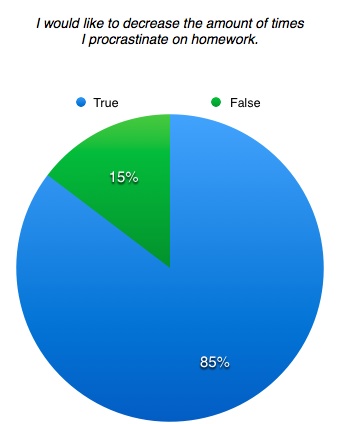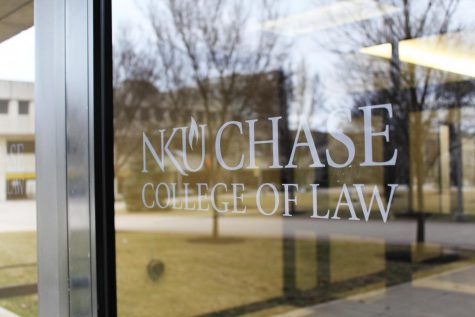Slacking off effects students in and out of the classroom
An NKU student stresses out over her work. Like many other students, she procrastinates, which leads to more stress.
Meredith Wolf, a senior organizational leadership major, knows a bit about time-management.
As a full-time student, president of Delta Zeta Sorority, 2014 orientation leader, member of the Psi Chi International Honor Society, and member of the Order of Omega and Organizational Leadership Collaborative, Wolf is on a tight schedule in and out of the classroom.
To maintain good grades and stay involved in her various extracurricular activities, Wolf said it has been very important for her to continuously improve and maintain her time management skills.
“Time management is definitely something that I have had to learn and adjust over the years,” Wolf said. “I’ve gotten much better about it since I have been in leadership positions that have helped me stay on track and kind of force me to stay organized, but it is still something that I continue to work on since new obstacles [like events and social activities] might come into the picture.”
However, Wolf said procrastination is sometimes an issue in her time management.
“I have procrastinated a little bit [last] week… since it’s Greek Week,” Wolf said. “But, at the same time, I know I still have enough time to get everything finished by the time it needs to be done.”
Wolf is not alone when it comes to procrastinating. In a recent survey, The Northerner asked 75 NKU students about procrastination.
The frequency of procrastination
In the survey, students were asked how often they procrastinate. Thirty-four percent of students said that they procrastinate two to four times a week and at 33 percent said they procrastinate eight or more times a week.
Katie Little, a senior elementary education major, said she often finds herself procrastinating on assignments.
“I think I procrastinate a lot,” Little said. “I always seem to be playing catch up rather than getting my work done early.”
According to Little, whenever she procrastinates because she is distracted by social media or chooses to go out with friends. Twenty-three percent of students, like Little, surveyed also found themselves using social media while procrastinating.
The health risks of procrastination
While there are general effects of procrastination inside the classroom, there are effects outside it as well.
Where there is procrastination, there is a risk for stress and anxiety. According to Rachel Bishop, student wellness manager, stress can lead to high blood pressure.
“It is proven that stress raises your blood pressure and over a long period of time it may cause actual hypertension, like a diagnosis of that where your blood pressure stays high,” Bishop said. “But certainly short term effects of stress can raise your blood pressure.”
According to Bishop when statistics are given about how many adults have hypertension, college students are actually a part of that demographic because they are then typically classified as an adult.
“If you are creating behaviors in college that lead to hypertension, you will likely be a part of that statistic at some point,” Bishop said.
In the survey, 81 percent of students said that they felt stressed to meet a deadline after procrastinating, while 55 percent of students say that they have actually experienced a panic or anxiety attack as a result of procrastination.
“That is why we have a wellness center, a health counseling center, the student rec…it’s part of our strategic plan,” Bishop said. “Wellness is important for students, faculty and staff, but it’s important at this age because you’re creating so many habits that you’re going to take into adult life. If you’re creating habits…those will follow you.”
Changing procrastination habits
According to Bishop, procrastination is actually a result of poor time-management, so when a student is having trouble with procrastination and becoming overwhelmed she recommends that they first go talk to their professor about the issue.
“A good relationship with a professor can be viable,” Bishop said. “You need to talk to your professors and say ‘hey, I know I’m doing this, I want to get on top of it, I’m going to get on top of it, what feedback do you have for me right now that I can do etc.’ Even if you’re not behind yet and you’re just feeling the stress, having that open conversation with your professor can be very meaningful and can create accountability for you and also a relationship with your professor.”
Bishop also says that she encourages those students struggling with procrastination and time-management to come into the wellness center for a 30 minute, one on one appointment, where you will work with counselor’s to find a time-management schedule that works for you.
“The body is a resilient thing, so you can endure a whole lot of stress before something bad happens,” Bishop said. “But the point is you are a human being, and some day you will feel fatigued at some point, you will feel irritable, and you will have to make a hard choice eventually.”
Approximately 85 percent of those surveyed said that they would like to improve their time management skills. Both Little and Wolf agreed, saying that they too would like to improve on their habits.
“In my eyes there is always room for improvement so I try to improve on it everyday,” Wolf said. “My biggest weakness is to be just a couple minutes late for things, so I constantly push myself to get to places early now.”
To keep all of her homework assignments and extracurricular activities in order, Wolf uses a planner and other techniques that she feels could be helpful to other students.
“What has helped me is having a planner that I write literally everything in,” Wolf said. “I also have a binder that I keep all of my syllabi in and check off all of my assignments as I complete them. And I keep a to-do list at the front of my binder that has all of my assignments and extras… so I can make sure I get those finished first.”














